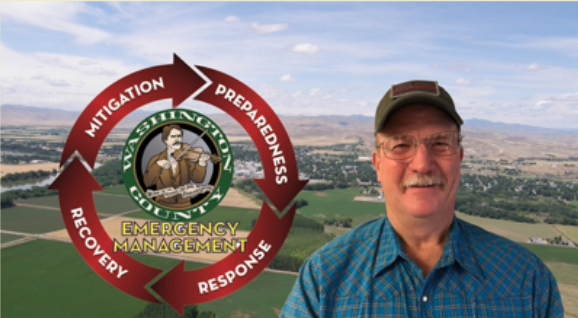The difference between being reactive and proactive is preparation. The advantage of preparation is that you can manage problems more quickly and more efficiently because you will already have solutions at hand ready to be implemented. The important factor here is time- and as we all know time is money.
If we’re going to prepare, what are we preparing for? This is one of the more difficult portions of preparations. A threat assessment is the best place to start, and start small. It is easy to prepare for a weekend without power but much more difficult to prepare for months without power for a grid down scenario. However with a good planning strategy you can do your preparations like a mighty tree with a good solid base and then branch out for more coverage. Develop a good solid base with basic essentials and expand upward. This saves time and resources. Most all emergencies start the same metaphorically speaking, then expand at different volumes and speeds. The definition of an emergency: a serious, unexpected, and often dangerous situation requiring immediate action. Develop plans for most scenarios that you may encounter, for example if you travel to the Oregon Coast you should have a tsunami evacuation plan before you ever go.
Following will be some areas that effect our local region as far as events we might prepare for. Flooding, earthquake, drought, fire, landslide, power outage, pandemic, economic failure (nationally, regionally and personally), civil unrest, wind, severe weather, disruption of the supply chain, volcanic eruptions locally and globally, of course there are a lot small incidents including flat tires, sliding off the road, you get the picture.
When developing your plan take into account the 3’s of survival to help guide your decision making.
3 seconds without HOPE (panic is your worst enemy)
3 minutes without AIR
3 hours without SHELTER (in extreme conditions hot and cold)
3 days without WATER (the human body is about 65% water)
3 weeks without FOOD (food is less important in the short term but can be a great morale booster)
The above will help with guidance along your road to preparedness. One of the biggest issues that I have run into is when situations aren’t presenting themselves, we become complacent until all of a sudden we’re faced with a dilemma. The program that seems to work for me is to devote an evening every week or so to study potential scenarios to make sure what I have in place will cover my family’s needs then make the appropriate adjustments.
Once a month as a family we discuss our plans and if adjustments need to be made. Our family utilizes opportunities to practice what we prepare for. As an example if we BBQ we use alternative methods to ignite the charcoal and the same when we camp we hone our skills, rather than using lighter fluid and a match, we’ll break out the flint and steel with some char cloth to get the fire going. We’ll use a day trip to roadside cook some freeze dried food that we take to try and taste test so we know it’s something we’ll eat when times get tough. We periodically check our preparations and make sure there has been no damage and they are functioning as they should. For most families this is an opportune time to teach others in your family how to maintain and operate your preps, allowing for more skill sets to be developed while spreading job assignments out making for less stress if they are ever needed.
Skill sets are just as important as physical items. Do you have training in First Aid, water harvesting, improvising make shift items with things you might find at home? Learn to make minor repairs if needed. Plant a garden. Identify and harvest wild edibles (artichokes, fish, game, mushrooms, and berries). Develop security measures for peace of mind. This list is endless. Develop short term and long term plans this is especially true for skill sets never stop learning.
There are many changes happening in the world right now and it’s in our best interest to do what we can to prepare for unseen circumstances. Preparedness doesn’t need to be all consuming, but being prepared for emergencies will make your life much easier when they happen.
Plan for 72 hours’ worth of preparations for each member of your party when traveling. Then start developing preparations for 2 weeks for your entire household as a starting point with a goal of 2 to 3 months within your first year, and expand beyond that.
Stay informed and let this be an incentive to become more self-reliant. Any situation is what we make of it. Redundancy is a good rule of thumb and remember (one is none and two is one) guard against Murphy’s Law. Stay safe and prepare within your means and always maintain hope.



































